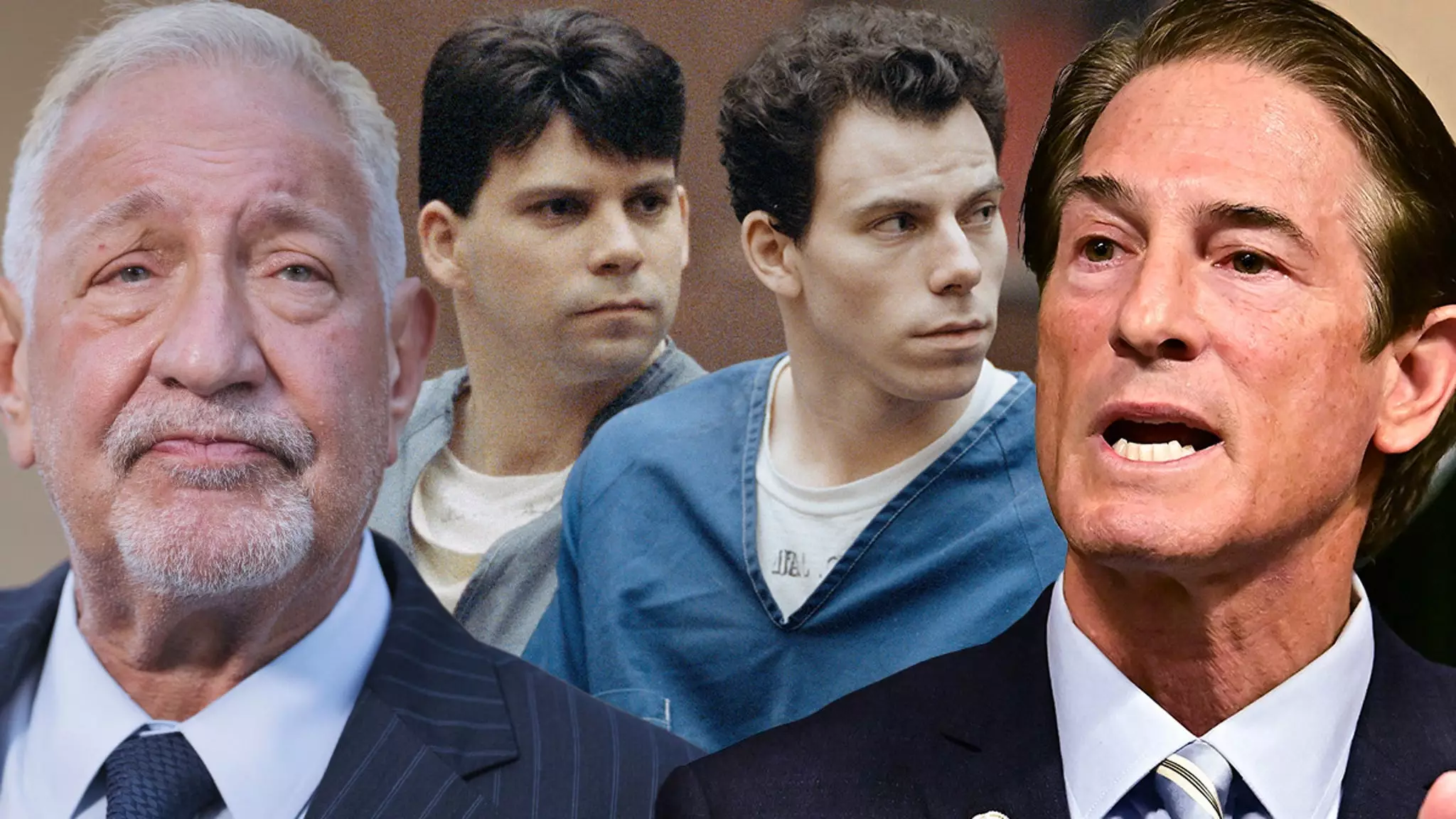The legal saga revolving around Erik and Lyle Menendez is a complex tapestry of personal history, legal maneuvers, and emotional upheaval for all parties involved. Los Angeles County District Attorney Nathan Hochman has chosen not to withdraw from the case—despite calls from defense attorney Mark Geragos for him to do so. Hochman’s steadfastness raises questions about biases that may undermine the integrity of the legal process, particularly considering his ties to the Menendez family’s affluent Beverly Hills background.
Hochman’s refusal to recuse himself is couched in legal rhetoric; he insists there is no basis for his withdrawal from the case. This dismissive stance has sparked outrage from the defense team, who characterize it as a “drastic and desperate step.” Such rhetoric opens up a broader conversation about the dynamics at play in legal proceedings where personal histories and past relationships intersect with the pursuit of justice.
The Emotional Toll of Resentencing
At the core of the current discourse is the issue of resentencing and whether the Menendez brothers should be afforded the opportunity to have their case re-evaluated in light of what they assert are significant developments in their rehabilitation. The emotional distress caused during this legal tug-of-war is evident, as the defense claims that Hochman’s actions have retraumatized the Menendez family. This accusation brings into focus the concept of victims’ rights, particularly under California’s Marsy’s Law, which accentuates the need for dignified treatment of those affected by crime.
The courtroom drama escalated following Hochman’s decision to show graphic crime scene photos at a previous hearing. The fallout included significant emotional distress for the Menendez family, culminating in an elderly relative being hospitalized. Such actions highlight an unsettling reality: the legal system can sometimes perpetuate trauma rather than alleviate it.
Criticism and Distrust of the DA’s Priorities
The sentiment expressed by Bryan Freedman, attorney for the Menendez family, further elucidates the growing discontent with Hochman. Freedman argues that the DA’s energies are misdirected; rather than addressing pressing public safety issues like increasing crime rates in Los Angeles, Hochman appears to prioritize self-promotion through media outreach. This prioritization raises ethical questions surrounding Hochman’s commitment to justice—are his actions reflective of genuine concern or mere opportunism for notoriety?
Freedman denounces Hochman’s attempts to engage with the media, claiming that they distract from the arduous realities faced by victims of crime. In doing so, he points to a pervasive disconnect between Hochman’s rhetoric and the lived experiences of those impacted by crime, suggesting that Hochman’s grasp on reality is tenuous at best.
The Road Ahead: Uncertain Justice for the Menendez Brothers
As the Menendez brothers await a court hearing set for next Friday, the stakes continue to rise. This session is pivotal, as it will address both the recusal motion and the admissibility of a risk assessment report ordered by Governor Gavin Newsom. The governor’s involvement signifies an elevation of the case’s profile, with implications extending beyond the brothers to reflect on California’s criminal justice system as a whole.
The risk assessment will play a crucial role in determining the fate of Erik and Lyle regarding clemency, encompassing their claims of rehabilitation and the contemporary relevance of the crimes they committed over three decades ago. With their convictions for the 1989 murders of their parents coming under renewed scrutiny, one cannot help but ponder whether justice will be served, or if the legacies of past transgressions will continue to overshadow their quest for freedom.
The collective narrative surrounding the Menendez case continues to evolve, positioning it at the crossroads of legal ethics, emotional tolls, and societal perceptions of justice. As the courtroom awaits its next chapter, the public remains divided—some seeing the Menendez brothers as tragic figures shaped by a tumultuous life, while others view them solely through the lens of their heinous crimes. This dichotomy serves as a reminder of the complexities inherent in the justice system, where facts often blur with personal stories, leaving a trail of contested truths in their wake.

Leave a Reply